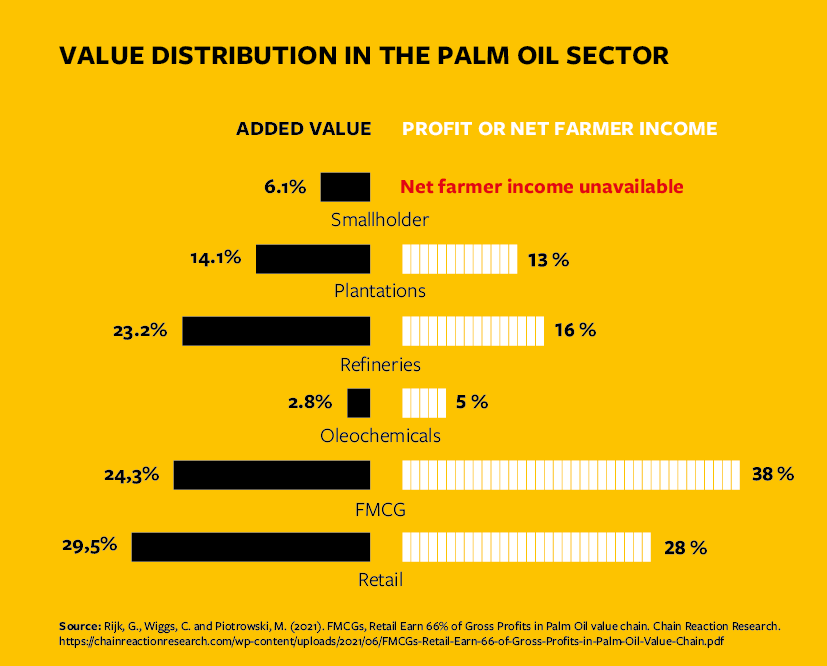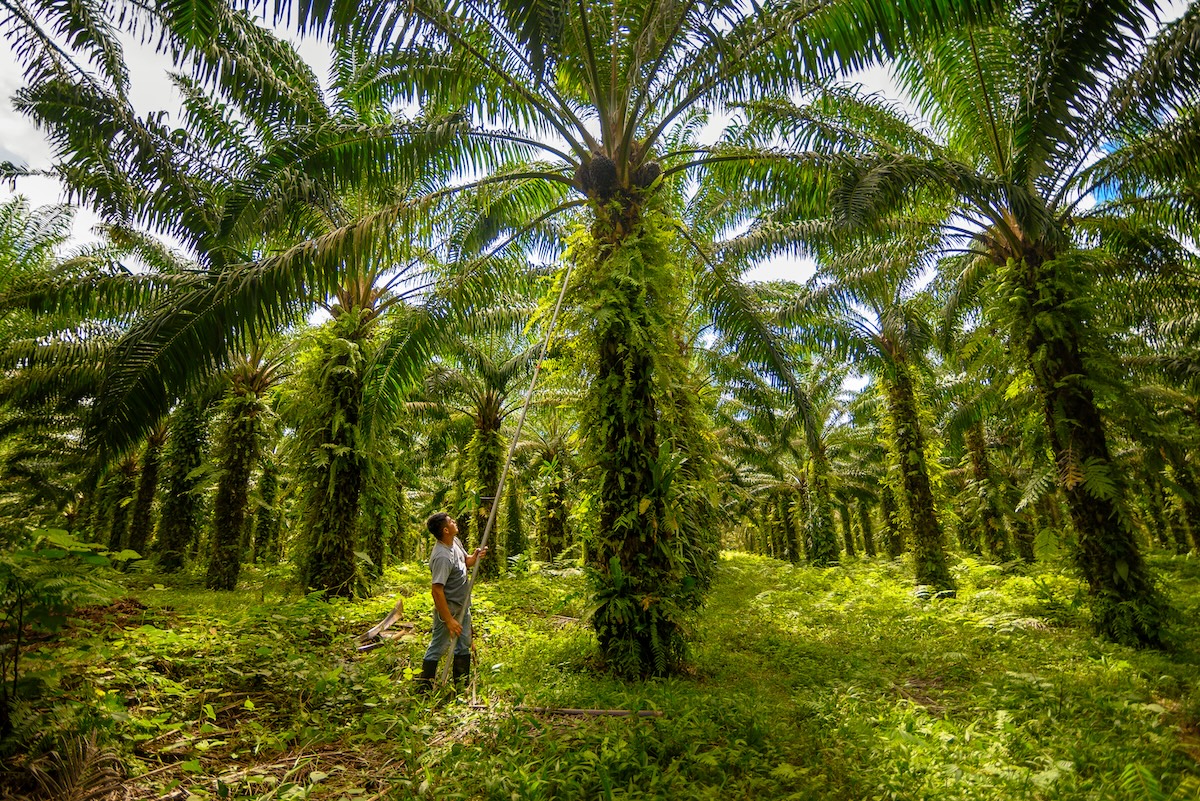A new report, Palm Oil Barometer 2025: Procurement for Prosperity, makes the call for a fundamental shift in how palm oil is procured. Palm oil is a highly productive crop that is vital to food security, and a source of income for millions, particularly smallholders in Asia, Africa, and Latin America. Though sustainably-produced palm oil can be a vital contributor to resilient livelihoods, the current approach often leaves smallholder farmers in a precarious situation.
“Governments and industry in collaboration with sustainability certification platforms, need to adopt a new business model for engagement, organizational development, and capacity building, that supports improved access to inputs and markets for independent smallholder farmers,” says M. R. Chandran, Chairman at IRGA.AG and Advisor to the Roundtable on Sustainable Palm Oil.
Palm Oil Policy Advisor Michel Riemersma of Solidaridad Network gives an overview of the 2025 Palm Oil Barometer: Procurement for Prosperity.
Oil palm is a highly productive crop that makes up 40 percent of the plant-based oil market, but occupies just 6 percent of the acreage dedicated to plant-based oil production, globally. Independent smallholder farmers produce 25-30 percent of the world’s palm oil on 27 percent of the total cultivated land area. Given its productivity, oil palm can provide farmers with a steady income, and has the potential to help farming families emerge from poverty within a single generation.

Smallholder palm oil production, a worthwhile investment
The core finding of the 2025 Palm Oil Barometer is that value is inequitably distributed throughout the supply chain, leaving smallholders at a loss in their efforts to produce sustainably. They also struggle to invest in practices that support resilience in the face of climate change. Smallholder farmers in Asia and Africa, in particular, are reliant on precarious incomes that are subject to volatile prices and extreme weather conditions exacerbated by climate change.
“Oil palm production in our communities faces serious challenges. Most farmers lack access to proper tools, equipment, and infrastructure, which leads to low yields and poor processing capacity. Even with training, our incomes are too low to invest in improvements. This keeps productivity stagnant and prevents the sector from growing.”
Michael Opong, an oil palm farmer in the Eastern region of Ghana
The consistent underinvestment and lack of equitable value distribution is a threat to the entire sector. Without access to better financing, technical assistance, and sustainable farming incentives, small farmers often resort to short-term survival strategies that can contribute to environmental degradation. Additionally, land tenure insecurity continues to create challenges, limiting smallholders’ ability to invest in long-term sustainability and discouraging compliance with stricter environmental regulations.

Shifting the focus to Procurement for Prosperity
The 2025 Palm Oil Barometer advocates for a transition from current sourcing practices to a “Procurement for Prosperity” approach. This means moving beyond sustainability certifications to ensure that palm oil procurement has a positive impact on suppliers, particularly independent smallholders, centered on fairer trading practices and genuine partnership.
The report outlines four core principles for Procurement for Prosperity:
- Policy: Companies integrate procurement practices that recognize independent smallholders in their overall strategy and decision-making processes.
- Pricing and payment terms: Fair pricing and payment terms must recognize and reward sustainable practices. This includes understanding farmers’ living income gaps and working to close them.
- Partnerships: Partnerships and collaboration across the supply chain need to incorporate farmers’ perspectives and include them in decision-making processes, including the development of pricing mechanisms.
- Programmes: Downstream companies need to support suppliers by investing in organizational strengthening, technical capabilities, and access to finance.
“Simply demanding sustainable production is insufficient. Companies need to commit to an inclusive value chain that recognizes and integrates independent smallholder farmer perspectives and voices, and enables sustainable production by paying fair prices that make a living income possible.”
Marieke Leegwater, Senior Policy Advisor, Solidaridad Europe.
“Simply demanding sustainable production is insufficient. Companies need to commit to an inclusive value chain that recognizes and integrates independent smallholder farmer perspectives and voices, and enables sustainable production by paying fair prices that make a living income possible,” said Marieke Leegwater, Senior Policy Advisor, Solidaridad Europe.
“As new regulations, like the EUDR, come into effect, we need a balanced approach that addresses deforestation by large-scale plantations, while ensuring human rights and smallholder inclusion to create a stable supply chain with reduced risk.”
The Palm Oil Barometer 2025 provides concrete recommendations for value chain actors, multi-stakeholder initiatives, public policymakers, and the financial sector as they work to advance smallholder inclusivity and create a more resilient palm oil industry. Every actor has a role to play in ensuring fair value distribution and supporting the prosperity of independent smallholders who are critical to the sector’s future.

